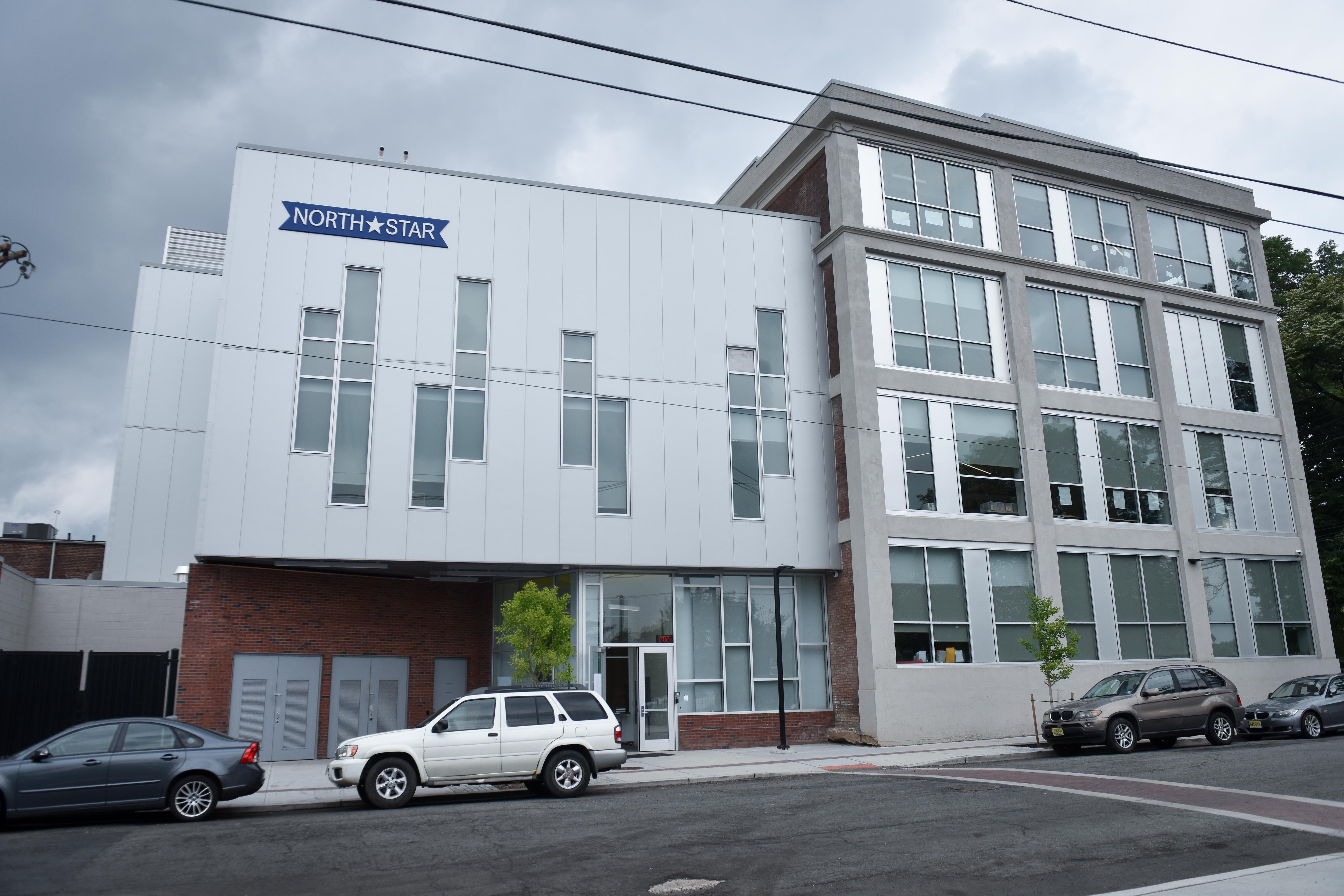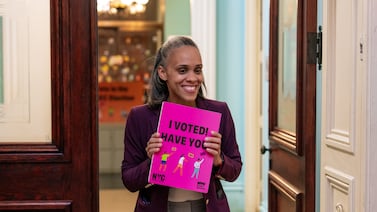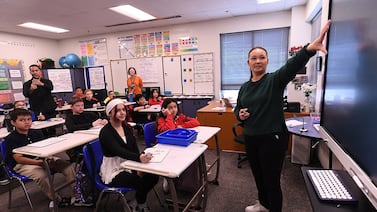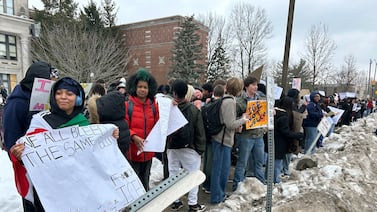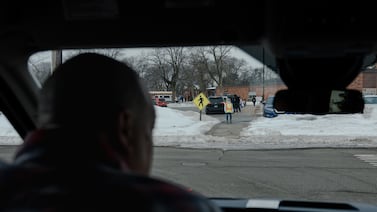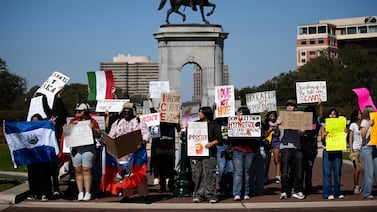When Maryam Agboola, a student at Washington Park High School in Newark, returned to in-person learning in the fall after 15 months of remote instruction, she felt a sense of relief and a bit of concern.
With COVID still spreading in her community, she worried about contracting the virus at school. But the junior has four advanced placement classes plus an internship and a class on coding this year — a demanding course load. She felt more confident and motivated to take on that load with the resources her school offers in-person, not remotely.
During winter break, when Newark Public Schools and other large charter school networks began announcing they would pivot to virtual learning in January as the city faced a surge in positive cases, she again had mixed feelings about her school continuing in-person instruction.
“I mean, there’s something so stressful about being in-person because of COVID,” Agboola said. “But at the same time, I like being able to see my friends and teachers.”
She’s more likely to finish her work on time, she says, when she’s surrounded by friends and has dedicated study hall time with the watchful eye of a teacher.
Agboola’s high school is part of North Star Academy, run by Uncommon Schools, and one of the city’s largest charter school networks. While most city schools delayed the return to in-person instruction by a week or two, the charter system comprising 14 schools took just one extra day off to allow for testing of staff and students.
North Star students were back in the buildings on Jan. 4, as the rest of the city schools went remote.
“We are committed to in-person learning because we believe it’s what is best for students, and keeping our community safe and healthy while we learn in school is our first priority,” said Barbara Martinez, spokesperson for North Star Academy.
Newark’s seven-day rolling average of positive COVID tests reached 39.15% on Jan. 4, up from 38% a few days earlier, according to Newark Mayor Ras Baraka’s COVID briefing that week.
That week, the city was averaging nearly 1,000 positive tests daily.
This week, the seven-day average was 32.03%, beginning to show signs of trending down, the mayor said Wednesday. Those estimates don’t always include positive at-home COVID tests.
Martinez said the charter school has preventative measures in place to mitigate the risk of spread, including mandatory daily health surveys and pooled PCR testing of staff and students. The school also encourages students and families to get vaccinated through school-based vaccine clinics, she added.
While Agboola and some students say they were both concerned and relieved about returning to in-person instruction immediately following the break, other students say they didn’t feel comfortable.
“When all the other schools are pretty much closed and you’re one of the only schools open, it feels unsafe and worrisome,” said Dashawn Sheffield, a junior at Washington Park High School. “I just wish the school would’ve closed for a week or two to allow things to calm down.”
Sheffield said he noticed some of his classes had roughly half the students in attendance last week. A class that typically had around 24 students had about 12 to 15, he said.
Not all students had the same experience, even at the same school. Agboola said she noticed around four to five students at most absent from some classes last week.
Another student, who asked not to be identified, said she was too worried about going in-person, so she provided false information on her daily health screening so that she could stay at home. Other students said they prefer being in-person and have difficulty learning at home with connectivity issues often leading to distractions.
North Star Academy’s COVID dashboard shows there were 18 positive cases among students and staff the week of Jan. 3, including one at Washington Park High School. The week of Dec. 6, there were 31 cases listed on the dashboard.
“Attendance has been strong, and getting stronger every day, and numerous families have expressed their relief and gratitude for keeping our students in school with all of these additional safety measures,” Martinez said.
Nationwide, the debate over keeping students in-person or at home escalated the first two weeks of January as cities across the country faced record-breaking positive cases.
Detroit schools extended remote learning until late January, and families were given until Jan. 31 to submit students’ testing consent forms. Chicago students headed back to their classrooms on Wednesday after a contentious standoff between the city and its teachers union over COVID safety concerns. New York City schools returned to in-person instruction after break, which led some students to organize a walkout in demand of a remote option.
Some Newark parents and students also feel there should be a remote option.
Lauren Yeboah, a senior at Lincoln Park High School, says she likes some benefits of being in-person, such as the resources her school offers. But she feels she’s not in the right headspace to be going to school in-person. “I’m just too stressed,” she said.
Rachel Lopez, a resident of nine years, has two children in two different charter schools. Her 14-year-old son attends Link Community Charter School, which has been remote since mid-December. Her son, whose name she asked not to publish, excels with remote learning, she said.
Her 8-year-old daughter attends a North Star Academy elementary school. Lopez decided to keep her home the first week of January, despite the school being in-person. Her daughter’s teacher provided the family with a take-home learning packet. A remote instruction option is not offered in New Jersey, but some districts have temporarily given families the option.
Her daughter returned to school this week so that she wouldn’t miss out on exams. But Lopez says the third grader spends the day telling her classmates to wear their masks properly, and sometimes “panics” when too many people aren’t following masking rules.
“How can a child learn like that?” Lopez said.

